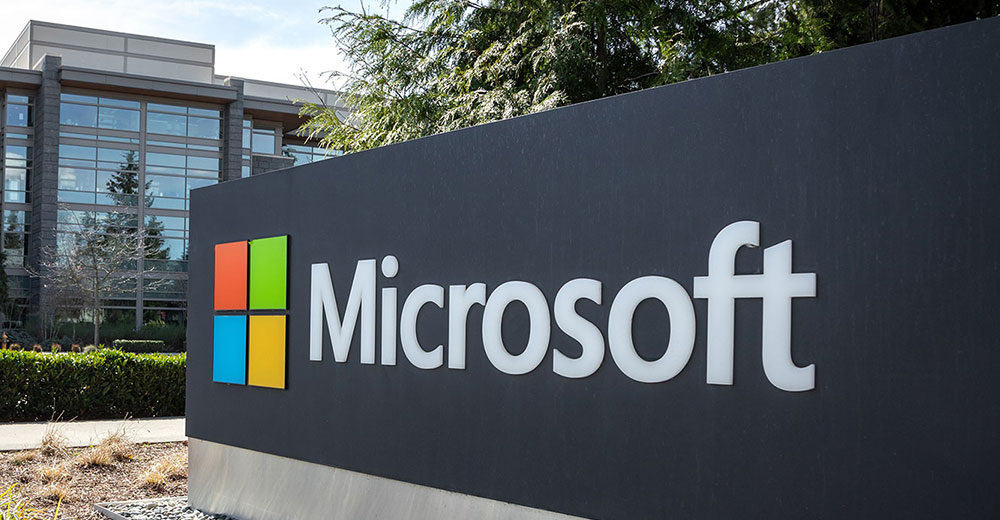Having Google I/O immediately followed by Microsoft Build, with both conferences focused on AI, provided an interesting contrast between the two companies’ approaches to AI. Microsoft is all about PCs for AI integration, while Google is all about smartphones.
As I sat in the Microsoft audience waiting for the keynote, there were no PCs in sight, but when the keynote started, most of us got out our PCs because smartphones are not useful for writing. We don’t need one or the other. We need both.
Interestingly, the two tech companies backing up the Microsoft announcement were not Intel or AMD but Qualcomm on the PC and Nvidia in the cloud. This once again showcased that if those two companies could put aside their animosity and cooperate more closely with each other, they likely could secure their AI futures. They are both exposed as AMD and Intel ramp up to compete and as companies like Microsoft, Google, Facebook, OpenAI, and Amazon ramp up their own internal hardware efforts.
Let’s talk about AI this week, and we’ll close with what I think is the best of the notebook computers coming to market that uses the new Qualcomm Snapdragon X Elite.
PC or Smartphone?
If you watched Google I/O, you saw a compelling demonstration of how your smartphone could be the most convenient way to interact with AI. Your smartphone is always with you, its camera is easy to use, and it can more effectively learn about your personal life to create AIs that better match your unique needs.
Microsoft highlighted its AI in the PC, which learns from your work habits, digital communications, gaming activities, professional interests, skills, and capabilities. The PC remains your work interface, and the AI learns how you deal with long-form communication to improve its understanding of your processes, skills, and capabilities.
Google’s approach should improve your personal life, while Microsoft’s should enhance your professional life. However, you are not solely one or the other; you are both. Therefore, for the AI to truly know you and be most effective at working and playing with you, it needs to engage with you professionally and personally.
You will want an AI that is consistent across both platforms. So, both Google and Microsoft are exposed to a future competitor that can bridge both platforms or produce a new device that can be effective personally, like a smartphone, and professionally, like a PC.
In a weird way, right now, as I mentioned above about Qualcomm and Nvidia, the most beneficial approach for users is for Google and Microsoft to collaborate rather than compete, as their efforts complement each other.
Quality Over Performance
One of the things that concerns me more about Microsoft’s approach compared to Google’s is the lack of a focus on quality. If you have quality issues (and everyone has quality issues) and you increase speed without addressing those quality issues, you will make more mistakes. If those mistakes propagate into AI systems, their frequency and impact will increase dramatically.
The industry is approaching this backward by focusing on performance increases rather than quality issues. With people like Nvidia CEO Jensen Huang arguing that you do not need to learn how to code, the ability to find these mistakes is decreasing while the number of errors is increasing as we increase speed. There is a real possibility we will eventually have quality issues that accelerate faster than we can mitigate them. I am already seeing a significant reduction in quality as companies ramp up AI.
The reason I am focusing on Microsoft here is not because it has a lower focus on quality than Google but because Microsoft’s focus on development and creation makes the quality problem far more dangerous. Google’s demonstrations did not include coding. What its users created was more in line with entertainment, while Microsoft’s tools are used to build buildings, design vehicles, and create new AIs. Thus, the risks of this problem are greater in Microsoft’s work, so it has a higher quality requirement than Google’s based on the two companies’ presentations.
AI Benefits
Microsoft displayed a different and very compelling set of AI use cases. From helping the blind by using the AI’s ability to describe what it is seeing and providing direction and descriptions based on that sight to giving a person with paraplegia the ability to talk and move, it was a particularly compelling demonstration.
It could help teachers be more effective while freeing up their time to focus more on individual students, and it could even help a father learn how to play Minecraft with his young son. I found the focus on teachers particularly compelling because they are critical to assuring future generations. Then, there was the training aspect of the tool, and the gaming demonstration really caught my interest.
This last was particularly interesting because I often lose interest in a new video game because, during the initial learning phase, picking up the unique aspects of the game, for me, is more like work than fun. But I know I will enjoy the game more if I can get through that learning phase. In story-based games, there are times I just want to move forward in the story without spending a ton of time on a particular puzzle aspect of the game.
In addition, it is often more helpful to have a coach rather than an online guide to get you over the hump, and that is what Microsoft demonstrated: an AI coach that behaved and sounded like a human that could see what you are seeing and guide you toward a more successful, and for me, a more fun gaming experience. This would remove a lot of my trepidation when buying a new game, with the result being I am more likely to buy more games if they have this function.
Office 365 is heavily adopting Copilot, allowing you to create presentations from documents automatically. It might be far more effective to draft a document when creating a presentation than jumping into PowerPoint directly.
I have often wanted to learn Adobe’s tools so I could use them to create better pictures and movies, but the learning curve is steep. With AI, the learning curve is significantly reduced, making it much more likely that I could become immediately productive with the product.
With AI, onboarding to even the most challenging tool will become much easier, which could be huge for companies like Adobe that have powerful tools but have been limited in sales by customer fear of the related learning curve.
Wrapping Up: Our Approach to AI May Be Critically Wrong
I mentioned that we are overly focused on speed, not quality. I will add that this is where we have the greatest need for AI: decision support. This quality vs. speed issue is an example of that. For instance, earlier this year, the board of OpenAI fired their CEO. That ended badly. Their decision was well-founded but not well-thought-through. Instead of making OpenAI safer, their failure has arguably made the company less safe.
We often make decisions that, had we thought them through, we would have made differently or not made at all. We are all smarter in hindsight, but AI could help us avoid many of our critical mistakes.
In a way, this takes us back to quality. Rather than initially focusing AI on making us more productive, shouldn’t we focus it on helping us create a better, happier life? Could it help us avoid relationships, careers, and mistakes that haunt us through our lives and assure us that where we are and where we end up is where we will enjoy most and regret least?
I think AI should be focused on ensuring our best future, not just our most productive one, but that is not the path we are on right now.

Samsung Galaxy Book4 Edge
At the Microsoft event, Acer, Asus, Dell, HP, Lenovo, Microsoft (with Surface), and Samsung all showcased notebooks powered by the new and impressive Qualcomm Snapdragon X Elite processor, which is currently the only processor that has enough performance to run Microsoft Copilot fully.
Most of the offerings were generic because of the speed at which these products had to be developed. Microsoft’s focus on Apple resulted in the best Surface laptop so far. Acer had an interesting feature that lit up when Copilot was in use, but Samsung did what it did with the old Microsoft VR headphone effort and created the strongest premium experience with a very clean design, the use of premium technology and features throughout, and by far the most beautiful OLED screen.

The Galaxy Book4 Edge is a Copilot+ PC powered by the Snapdragon X Elite processor. (Image Credit: Samsung)
I struggled with what notebook I would want to carry: the Surface Notebook which has long been a favorite, the light feature on the Acer coupled with its exceptionally clean design, or the balls-to-the-wall effort that Samsung brought forward.
In the end, among remarkably similar offerings, the Samsung stood out as the one I would buy if I needed a new PC. As a result, the Samsung Galaxy Book4 Edge is my Product of the Week.
Samsung is one of only two Windows PC vendors that could blend smartphones and PCs to create the consistent AI experience we want on both platforms. The other is Lenovo. Watch these two vendors going forward because they could end up owning the future of AI-supported personal technology. Oh, and hats off to Qualcomm for its Snapdragon X Elite, which makes this possible.



























































